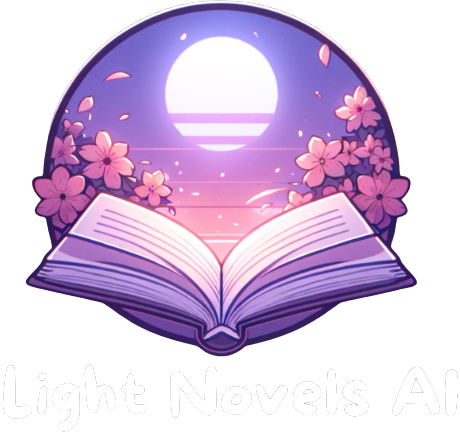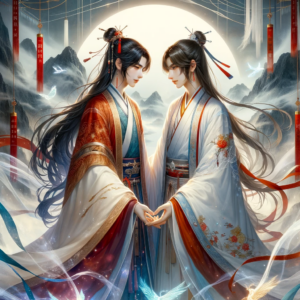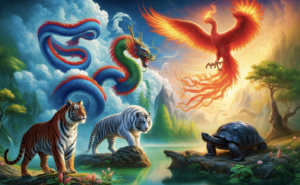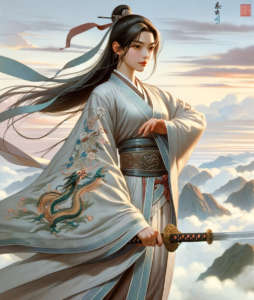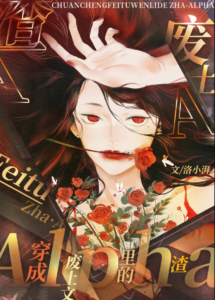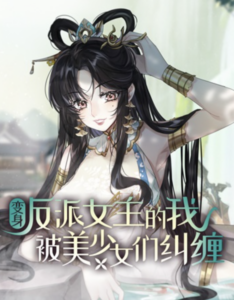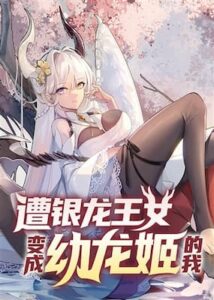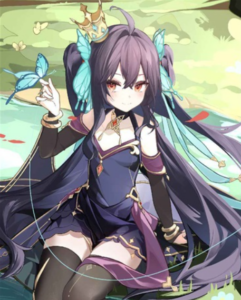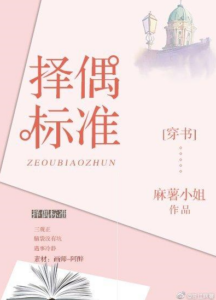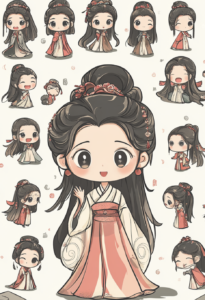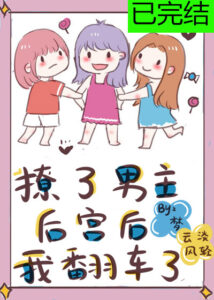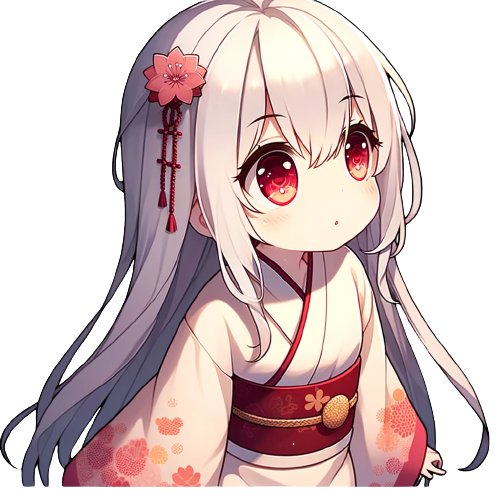Cultivation Levels and Realms
Power Scaling Gone Wild
Power scaling often spirals out of control. Authors love to create ever-increasing levels of cultivation, each more grandiose than the last. It starts with mundane realms like “Qi Condensation” and “Foundation Establishment,” but quickly escalates to “Void Transcendence” or “Celestial Godhood.” These inflated power scales can leave readers dizzy, struggling to keep track of where characters stand. It’s a common trap that authors fall into, trying to one-up previous works and maintain a sense of progression, but it often results in a convoluted mess of realms that loses its impact.
Breakthrough Bottlenecks
Breakthrough bottlenecks are a staple in Xianxia, but they’ve become predictable. The protagonist always faces a seemingly insurmountable obstacle, only to overcome it through sheer willpower or a convenient power-up. These bottlenecks often occur at the most dramatic moments, creating artificial tension. While Chinese readers enjoy the struggle and eventual triumph, the formula has become stale. Authors rely on this trope to create suspense, but it’s so overused that experienced readers can spot the pattern from a mile away, diminishing the emotional impact of these pivotal moments.
The Arrogant Young Master
Courting Death Syndrome
The arrogant young master’s “Courting Death Syndrome” is as ubiquitous as tea in a Chinese household. These pompous characters, often from influential clans, strut about with an inflated sense of self-importance. They’re like moths to a flame, irresistibly drawn to conflict with the protagonist. Their catchphrase? “Do you know who I am?” It’s as if they’re begging to be humiliated. Chinese readers can’t get enough of these encounters, eagerly anticipating the moment when these haughty individuals receive their comeuppance.
Face-Slapping Moments
Face-slapping scenes are the bread and butter of Xianxia novels, delighting Chinese readers with their satisfying predictability. It’s the literary equivalent of watching a bully trip over their own feet. The arrogant young master, after spouting grandiose threats, invariably finds himself outmatched by the protagonist. The ensuing humiliation is so severe, it’s as if they’ve been slapped with the Great Wall itself. These moments serve as cathartic release valves, allowing readers to vicariously triumph over real-life injustices through the protagonist’s victories.
Hidden Bloodlines and Secret Identities
Mysterious Ancient Lineages
Mysterious ancient lineages are as common as tea in a Chinese restaurant. Protagonists often discover they’re descendants of legendary cultivators or extinct clans. These bloodlines conveniently unlock hidden powers, granting the hero an edge over rivals. Chinese readers can’t get enough of this trope, as it feeds into the cultural fascination with ancestry and inherited potential. It’s a literary shortcut to justify rapid power-ups and unexpected abilities, keeping the plot moving at a breakneck pace.
Sudden Power Awakenings
Sudden power awakenings are the bread and butter of Xianxia storytelling. One moment, the protagonist is a weakling; the next, they’re unleashing earth-shattering techniques. These awakenings often coincide with life-or-death situations, providing a rush of excitement for Chinese readers. It’s a reflection of the ‘hidden dragon’ concept in Chinese culture, where great potential lies dormant until the right moment. Authors use this trope to create jaw-dropping moments that keep readers hooked, even if it’s become as predictable as sunrise.
Jade-like Beauties and Cold Ice Queens
Love at First Sight
Protagonists often stumble upon breathtakingly beautiful women with “jade-like skin” or “icy dispositions.” These encounters invariably lead to instant attraction. Chinese readers relish these moments, as they represent the ideal of finding a perfect partner. Authors frequently describe these beauties using poetic language, comparing their features to celestial beings or natural wonders. This trope appeals to the fantasy of effortless romance, where the hero’s mere presence captivates even the most aloof beauties.
Harem-Building Tendencies
Xianxia protagonists rarely settle for just one love interest. Instead, they accumulate a harem of stunning women, each with unique abilities and personalities. This trope caters to male readers’ fantasies of being irresistible to multiple women. Authors skillfully balance the harem dynamics, ensuring each member has a distinct role and reason for admiring the protagonist. While some Western readers might find this concept problematic, Chinese audiences often view it as a testament to the hero’s charisma and worthiness of admiration from exceptional women.
Magical Treasures and Artifacts
Spatial Rings and Inventory Systems
Spatial rings are the ultimate convenience. These tiny trinkets pack entire warehouses into a fingertip, solving storage issues with a flick of the wrist. Chinese readers adore this trope, as it allows protagonists to carry mountains of loot without breaking a sweat. It’s like having a bottomless backpack in a video game, but with more mystique. Authors often use these rings to create dramatic reveals or last-minute saves, adding an element of surprise to otherwise predictable scenarios.
Overpowered Weapons
No Xianxia hero is complete without a legendary weapon that’s older than time itself. These artifacts often have grandiose names like “Heaven-Splitting Sword” or “Cosmic Devourer Staff.” They’re not just powerful; they’re sentient, choosy, and usually hidden in plain sight as mundane objects. Chinese readers expect these weapons to grow with the protagonist, revealing new abilities at convenient plot points. It’s a power fantasy that never gets old, allowing readers to imagine wielding universe-shaking might with a single swing.
Pill Concocting and Alchemy
Miraculous Healing Elixirs
Miraculous healing elixirs are as common as rice in a Chinese kitchen. These magical pills can cure everything from a stubbed toe to fatal wounds in the blink of an eye. Protagonists often stumble upon ancient recipes or befriend master alchemists, gaining access to these life-saving concoctions. It’s a convenient plot device that keeps heroes alive through impossible odds, letting authors push the boundaries of danger without permanent consequences. Chinese readers love these instant fixes, as they symbolize the power of traditional medicine and the pursuit of immortality.
Cultivation-Boosting Drugs
Cultivation-boosting drugs are the steroids of the Xianxia world. These potent pills accelerate a cultivator’s progress, compressing years of hard work into mere moments. They’re the ultimate shortcut, allowing protagonists to leapfrog their rivals and ascend to higher realms at breakneck speed. Chinese readers find these power-ups irresistible, as they tap into the desire for rapid self-improvement and success. But, like all good things in Xianxia, these drugs often come with risks, side effects, or karmic debts, adding a layer of tension to their use.
Tournaments and Competitions
Xianxia novels often revolve around epic tournaments and competitions, showcasing the protagonist’s growth and providing opportunities for face-slapping moments. These events serve as pivotal plot points, driving character development and advancing the story.
Underdog Victories
In Xianxia tournaments, the underdog protagonist’s triumph is as predictable as the rising sun. Even though facing seemingly insurmountable odds, our hero always manages to pull off a miraculous victory. They’ll overcome stronger opponents, often revealing hidden powers or secret techniques at the last moment. This trope resonates deeply with Chinese readers, who love seeing the little guy win against the establishment, reflecting cultural values of perseverance and the potential for anyone to rise above their circumstances.
Humiliating Opponents
No Xianxia tournament is complete without the protagonist thoroughly humiliating their arrogant opponents. These face-slapping moments are a staple of the genre, satisfying readers’ desire for justice and comeuppance. The hero doesn’t just win; they crush their rivals’ pride, often exposing their misdeeds or hypocrisy in the process. This trope taps into the Chinese concept of “face” and the satisfaction of seeing the mighty fall. It’s a cathartic experience for readers, allowing them to vicariously triumph over real-life injustices through these fictional victories.
Ancient Ruins and Forbidden Areas
Time-Limited Treasure Hunts
Ancient ruins often house priceless treasures with expiration dates. These time-limited hunts create a sense of urgency, pushing cultivators to their limits. Protagonists race against rival sects, facing treacherous landscapes and fierce competition. The ticking clock adds tension, while the promise of legendary artifacts or cultivation techniques keeps readers hooked. Chinese audiences love these high-stakes scenarios, as they reflect the cultural emphasis on seizing opportunities and overcoming challenges under pressure.
Deadly Traps and Puzzles
Xianxia authors love to pepper ancient ruins with lethal traps and mind-bending puzzles. These obstacles test the protagonist’s wit, reflexes, and cultivation skills. From poison-tipped darts to reality-warping illusions, each challenge showcases the hero’s growth. Clever solutions often involve deciphering ancient texts or utilizing obscure cultivation techniques. These traps and puzzles resonate with Chinese readers, who appreciate the blend of intellectual prowess and martial strength. It’s a thrilling dance of danger and reward that keeps pages turning.
Heavenly Tribulations
Breaking Through the Heavens
Heavenly tribulations are the ultimate test of a cultivator’s strength and determination. These cosmic trials occur when a cultivator is on the brink of a major breakthrough, typically to a higher area of existence. The protagonist must face lightning bolts, divine fire, or even conceptual attacks that threaten to obliterate their physical form and soul. Overcoming these trials often results in a dramatic power boost, reinforcing the idea that true strength comes from perseverance and defying the heavens themselves.
Divine Punishment and Rewards
Heavenly tribulations serve as both divine punishment and a chance for extraordinary rewards. Chinese readers relish the tension as protagonists dance on the razor’s edge between destruction and ascension. Successfully weathering a tribulation often grants cultivators unique insights, powerful abilities, or even remnants of divine power. This trope resonates deeply with Chinese culture’s emphasis on enduring hardship to achieve greatness. It’s a thrilling moment when the hero emerges victorious, having literally conquered the heavens and proven their worthiness to attain a higher level of existence.
Reincarnation and Transmigration
Modern Knowledge in Ancient Worlds
Xianxia authors love to transplant modern minds into ancient cultivator bodies. It’s a goldmine for easy plot advancement. The protagonist’s 21st-century knowledge becomes a cheat code in a world of alchemy and qi cultivation. They’ll revolutionize agriculture, introduce “new” inventions, and outsmart everyone with their “unique” insights. It’s wish fulfillment at its finest, allowing readers to imagine themselves as the smartest person in a magical area.
Revenge and Second Chances
Rebirth plots are catnip for Chinese readers craving justice. A defeated hero gets a do-over, armed with future knowledge to right past wrongs. They’ll outsmart rivals, protect loved ones, and climb the power ladder faster than before. It’s all about face-slapping former tormentors and proving oneself superior. This trope taps into the deeply satisfying fantasy of fixing past mistakes and emerging victorious against all odds, resonating strongly with the Chinese concept of karmic retribution.
